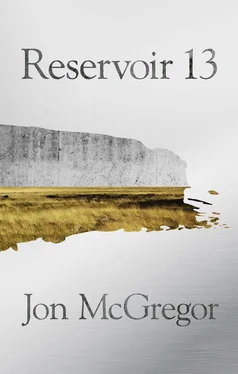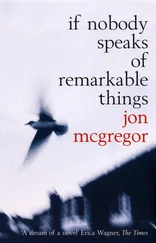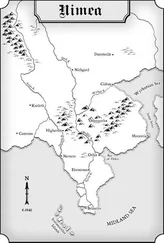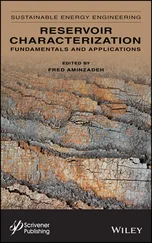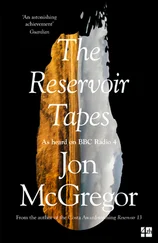In October the winds were high and in the mornings there were trees blocking the road. The sound of gunshots cracked down from the woods in pairs. There were more sightings of the missing girl’s father, although some of them turned out to be false. It was known that he no longer wore the charcoal-grey anorak, and there was anyway no shortage of preoccupied men striding solitary through the hills. But there were enough sightings to give the impression of a man who couldn’t keep away. There was talk that he and the girl’s mother had divorced, and around that time the sightings increased. On the shore of the reservoir; around the edge of the quarry; down at the river by the packhorse bridge. Almost always seen from a distance, moving away. At the allotment the pumpkins fattened slowly, lifted from the damp soil on squares of glass, striped in the low autumn light. Jane Hughes walked back from the Hunter place and happened upon Jones beside the millpond. He was standing patiently with his hands behind his back, his shoulders hunched and his neck angled forward. She didn’t want to interrupt, but as she walked past there was a softening in his posture which she understood as acknowledgement. She’d grown used to these cues. She stepped up beside him and looked at the water for a moment. Mr Jones, she said. Vicar, he replied. You’ve been keeping well? she asked. He nodded. And your sister? He didn’t answer, but pointed in at the water, at some tiny change in the light she could barely see. Scared them all off now, he said. Really? I’m stood in the shadow of the tree, he explained; so I’m right. But you’ve come looming, so. She stepped away from the edge of the water apologetically. She looked at him. Are you fishing today? No, he said. But if I was. I’ll remember that then. Sorry. There was the clatter of woodpigeons’ wings in the trees overhead, and the sound of the water moving over the stones. Jones still had his hands behind his back. She’s home again, he said. I gathered, yes. There’s plenty of trout in there, he told her, if you don’t bother them. We don’t see her around much, Jane said, leaning out over the water as though watching for trout, giving him a chance to speak without being looked at. She doesn’t go out, he said. She waited, but there was no more. That must be difficult for you, she said. Not really. She’s no bother. Do you get any help? She felt him stiffen beside her, and his hands came round from behind his back, rearranging his jacket buttons, his cap. He turned away from the water. Weather, he said, nodding towards the hills. It looks like it’s coming in, she agreed. Be seeing you then, he said, lighting a cigarette and setting off along the footpath towards the packhorse bridge. On the stubbled fields of Thompson’s land a buzzard wandered, picking for worms.
A fog rose early from the river and settled over the morning and the streets felt thick with sleep. On the bank at the top end of the beech wood the badger sett was quiet. There were tracks between the sett and the damp ground beneath the elder trees where the earthworms were mostly found, but the feeding trips were brief. There were dry leaves and grasses scattered up towards the sett. A settlement was reached over the footbridge, with the Culshaw Estate and the parish council and the National Park agreeing to split the cost. The Jacksons took the contract and had the job done in three days. On Bonfire Night the rain kept people indoors and although the bonfire had been covered it took a long time to light, smoking and spitting while a small crowd stood beneath umbrellas and cheered sarcastically. Later in the month Will Jackson took Tom out on the back of the quad bike to check on the ewes that hadn’t yet been brought down to bye. While they were up there he explained that the three of them would be living together again soon. Tom was helping to check feet, and he concentrated very hard on the hoof he had jammed between his knees. Mum told me, he said, eventually. You’re all right with it then? It’s not up to me. No, but we want you to feel all right about it. Will found the first signs of scald on a ewe, and asked Tom to pass him the spray. Think it’ll be easier than going backwards and forwards all the time? Can we talk about something else, Dad? Will looked at Tom and nodded, and they didn’t say anything for a while, and once they’d checked the whole flock they sat on the edge of the trailer and looked down the hill.
A woman by the name of Susanna Wright moved into one of the three-bed houses on the Close with her children. Questions were asked as to how she’d been allocated when she wasn’t known. Others had been on the list for longer. She was quick to introduce herself but vague about where she was from. Her accent was southern. She had a boy of fifteen and a girl of ten, Rohan and Ashleigh, who spent their first days in the village slouching about with the sullen expressions of children who’ve grown up in the city and feel threatened by people willing to say hello. There were questions about why she’d moved in at this time of year, and where the father might be, but nothing was said to her face. She was heard in the post office talking about a damp problem, and Gordon Jackson was soon round there offering to help. At the other end of the Close Claire moved back into the flat Will had managed to keep on since she’d left him the first time. There was no real ceremony to it; half her stuff had been left in the cupboards all along, and since that evening when they’d stopped off at the quarry she’d been leaving more of her things each time she stayed over. Tom wasn’t sure he preferred the new arrangement. He wasn’t surprised when he heard them arguing about curtains. He didn’t think his dad had ever had an opinion about curtains before. He kept a bag of clothes and toiletries and schoolbooks tucked under his bed, just in case. A week before Christmas it snowed heavily overnight and in the morning people shovelled pathways from their doors, the village busy with the sound of metal scraping against stone and of car engines left running to warm up. Jackson’s boys went out and put grit on the steeper roads but for the most part people had to drive slowly, their tyres squeaking on the compacted snow. In the evening there were carol singers going from door to door for the local hospice, and their voices trailed thinly through the still cold air.
Richard Clark came home just after Christmas, and for once his sisters were there when he arrived. When he sat down to eat with them he felt cornered. The husbands and children made for a crowded dinner table and he didn’t have much to say. They were staying up at the Hunters’ barn conversions, and on the doorstep when they left his sisters talked about their mother’s health. There was talk about responsibility being shared. He couldn’t be out of the country this much, he was told. He was the oldest of the three but it had never felt that way. He said he’d do what he could but it seemed that their mother was coping perfectly well. His work wasn’t always predictable, he said. Your work’s a total bloody enigma, Rachel said. You know what I do, he replied. He started to explain again about his consultancy business, but they made yawning noises and laughed and headed for their cars. The high street was busy. The pantomime was on in the village hall, and well attended again. It was Aladdin this year. Tony was Widow Twankey, and he made a good job of it. He delivered his lines in a loud deadpan which at times didn’t look entirely deliberate, and he wore the heavy costume with a certain grace. Will Jackson was working backstage but had refused a part. When the audience headed out into the night the snow was falling thickly again. The next day Martin stopped off at Harefield to look at Ruth’s new shop. She was surprised to see him. He was heading to his new job in town but this wasn’t on his way. She asked how he was keeping and he said it was okay. There was a lot of fresh produce in wicker baskets, and sausages hanging in strings above the chiller counter, and a strong smell of coffee. There were many different types of olive. There were prices Martin found it difficult to believe people were actually paying, but when he asked how business was going Ruth said he’d be surprised. People had cut back on cars and foreign holidays, she told him, and they were spending what was left in shops like this. People liked to treat themselves to nice things. He wondered if this was a pointed remark but he let it settle. They’d had differences. It was done now. He was just glad to know things were going well. He drove into work fast enough that he almost lost grip on the last corner before town, and parked across two parking bays, and clocked on just before his shift was due. If he’d wanted a fucking economics lesson he would’ve asked.
Читать дальше
Конец ознакомительного отрывка
Купить книгу
